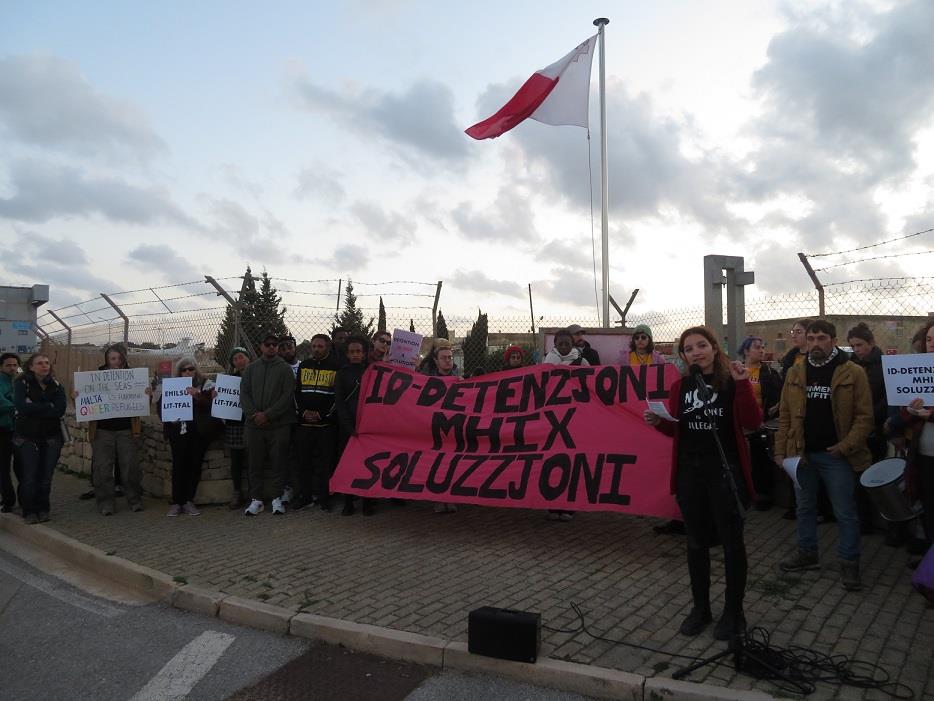
A number of NGOs took part in an event in solidarity with people detained in Safi and at other detention centres, saying that such a practice is not the solution.
Recently arrived migrants, traumatized by their journeys, are transferred directly from the sea to incarceration, while people who have been working and living in Malta regularly are arrested, detained at Safi, and forcibly deported, the NGOs said.
Vulnerable people, women, children, LGBTIQ+ persons, and people suffering from serious mental and physical health conditions continue to be detained. “We call on the authorities to immediately release all vulnerable persons from detention, abandon detention as a normalised practice and implement alternatives to detention,” the NGOs said.
Despite the fact that key civil society stakeholders are denied access to Safi, poor conditions there have been well-documented by multiple institutions. A report by the Council of Europe’s Committee for the Prevention of Torture concluded that people were “locked in accommodation units with little, if any, access to time outside, in severely overcrowded spaces, and essentially forgotten for months on end,” in conditions that “may well amount to inhuman and degrading treatment.”
Furthermore, the NGOs said there was a systematic lack of information provided to detained persons about their situation, compounded by minimal contact with the outside world or even staff,” and “young children and their parents as well as unaccompanied/separated minors [were] being detained… in very poor conditions.”
The exclusive provision of healthcare services on-site at Safi precludes access to the specialized, licensed health services that people require and denies them access to services from external and independent sources of support and care. It also serves to justify the continued detention of vulnerable people, with the argument that their multiple and complex needs are being met, the NGOs said.
Ultimately, people endure unnecessary, prolonged detention in conditions that degrade their mental and physical health and amount to what the Committee for the Prevention of Torture has described as “institutional mass neglect.” All the while, alternatives to detention are available in principle and in practice. For example, people could be allowed to reside in open centres or in the community on condition that they regularly sign with the Immigration Police. Indeed, community-based supervised release or case management is effective and significantly cheaper than detention. These alternatives allow people to live in dignity and make meaningful contributions to our economy and society.
We cannot abide and stand by as the authorities imprison vulnerable members of our community in inhuman and degrading conditions without access to independent legal services. We firmly believe that all people, not least children and vulnerable members of our communities, deserve liberty, the right to speedy due process and the right to a dignified existence. Let freedom be the norm, the NGOs said.












